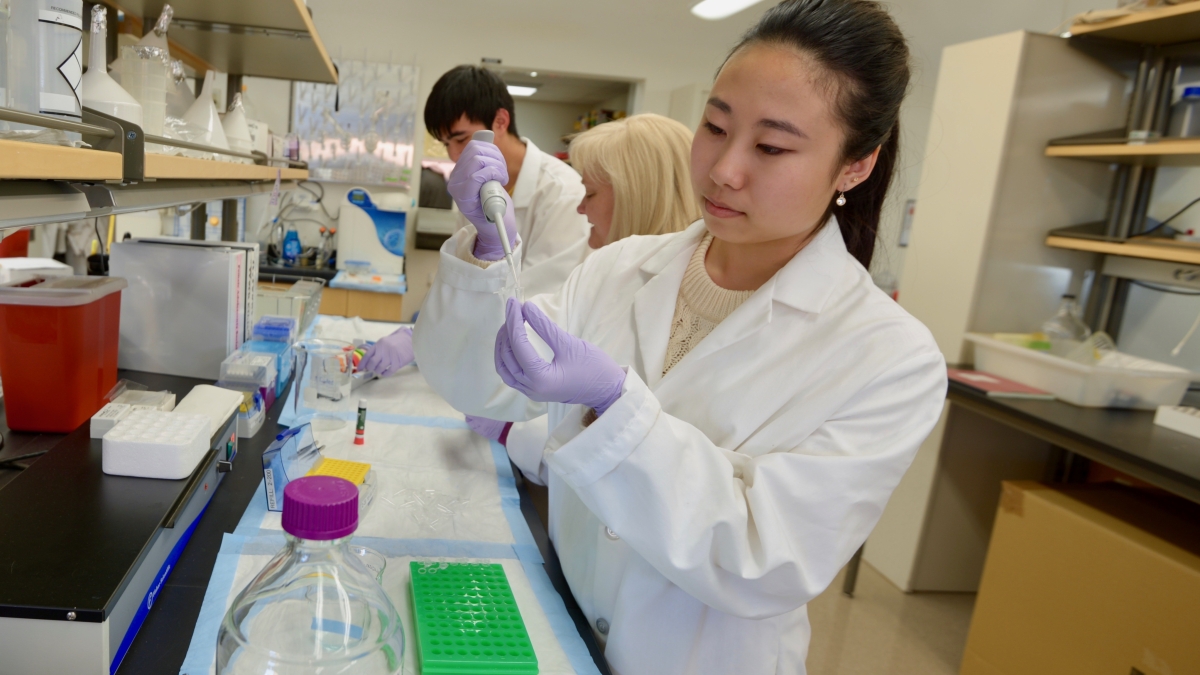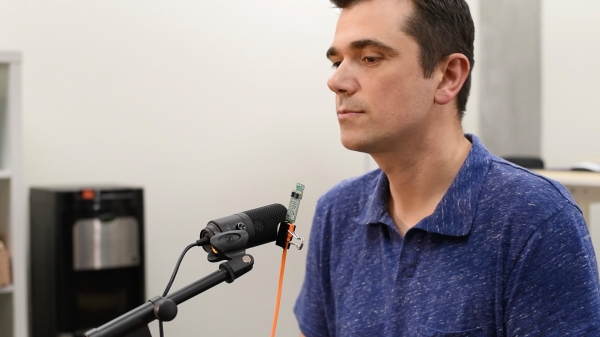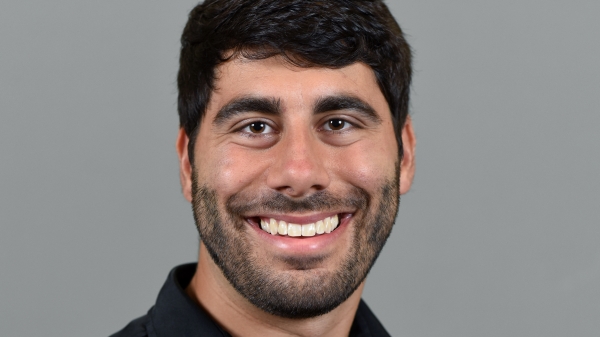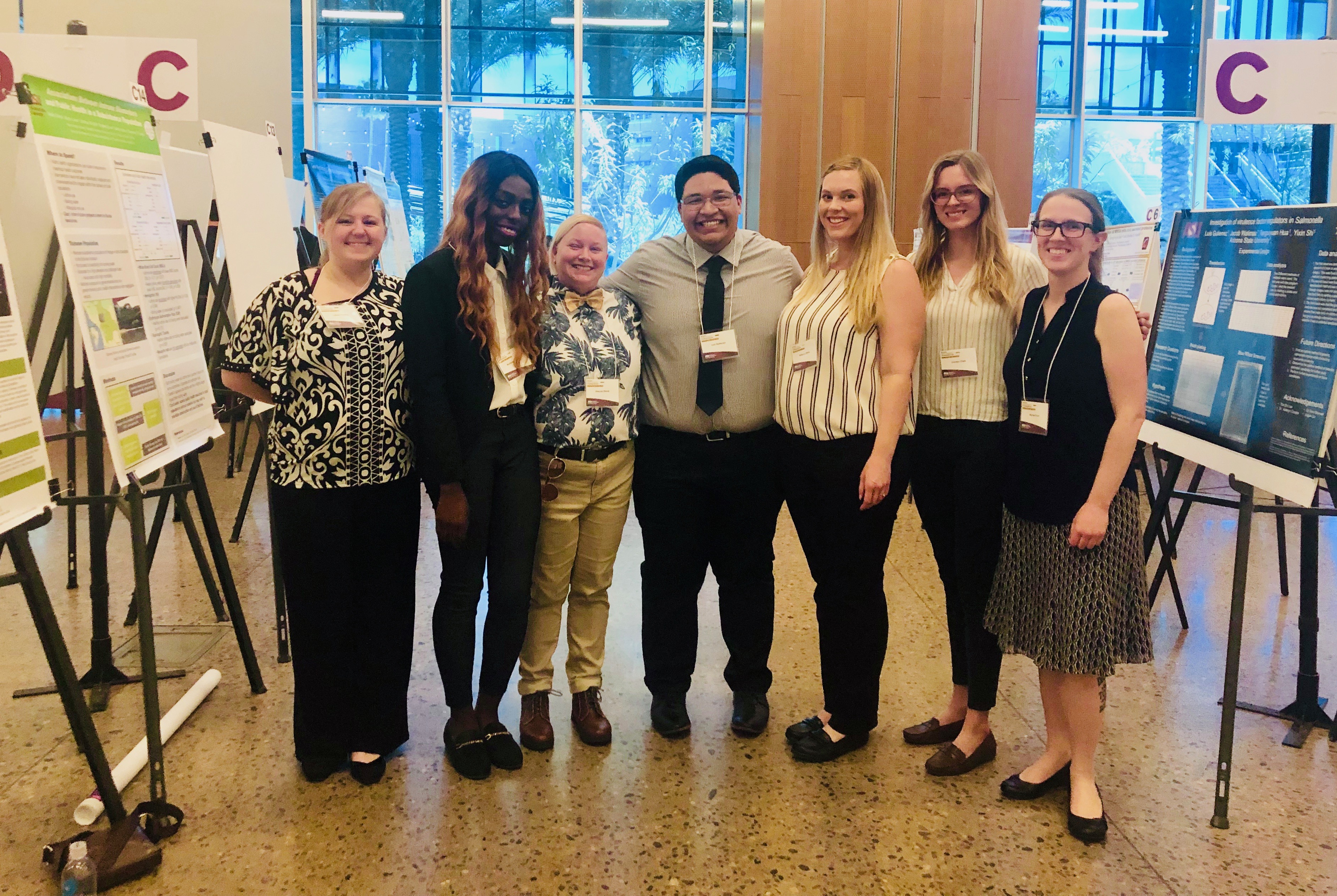ASU study shows positive lab environment critical for undergrad success in research
Undergraduate researchers with LEAP Scholars program publish findings

Undergraduate students work in a neuroscience lab with faculty member Janet Neisewander. Photo by Samantha Lloyd/ASU VisLab
Getting involved in research as an undergraduate can have significant benefits, such as enhancing a student’s ability to think critically, increasing their understanding of how to conduct a research project and improving the odds that they’ll complete a degree program in science, technology, engineering and math (STEM).
And, for students who participate in research over several years, the benefits are even greater. They often develop greater confidence in their research skills along with an ability to solve problems independently, and they are more likely to pursue a career in STEM.
But many undergraduates drop out of their research experience before graduation or even during their first year working in a biology lab. Until now, there has been no research as to why.
In a study published today in PLOS ONE, a group of 14 undergraduate Arizona State University co-authors addressed this question as part of a class project. Led by School of Life Sciences Associate Professor Sara Brownell, graduate student Logan Gin and University of Central Florida Assistant Professor Katelyn Cooper, students with the LEAP Scholars program surveyed more than 750 life sciences undergraduates doing research in 25 public institutions across the U.S. They found that 50% of students who participated in the study had considered leaving their undergraduate research experience more than 50% of those students ultimately decided to leave.
They also found that the most important factors that influence whether a student decides to continue working in research included a positive lab environment and enjoying their everyday research tasks, as well as flexible schedules, positive social interactions and feeling included. Students also persisted with their research when they felt they were learning important skills and perceived the work was important to their career goals.
“We often assume that all undergraduate research experiences are positive for students, but this study shows that this is not the case. If 50% of students consider leaving their undergraduate research experience, then that means that we have a structural problem with how we are integrating students in undergraduate research,” senior author Brownell said. “We can empower students with more knowledge about undergraduate research to help them choose a suitable lab, but we also need to find ways to make our research labs more positive environments for all students.”
Other factors, such as race, gender, GPA and college generation status, also play a role in what factors influence students to persist in their research experiences. Men were more likely than women to stay in research because they consider it important for their future careers. Men were also more likely to leave their research experience because they didn’t enjoy their specific lab tasks, while women were more likely to consider leaving because of a lack of flexibility in the lab.
Underrepresented minority students were more likely to leave their research work because they felt they were not learning important skills, while white students were more likely to stay in research because they enjoyed their everyday lab tasks. And, students with lower GPAs were more likely to stay in research because they were unsure about future research opportunities, while those with higher GPAs were more likely to leave research because they did not enjoy the everyday lab tasks.
“We were excited to identify factors that disproportionately affected underrepresented and marginalized students’ decisions to leave research. It will be challenging to identify solutions, but identifying these issues is a critical step in developing a more diverse and inclusive scientific community,” Gin said.
LEAP Scholar students present their research findings on undergraduate persistence in a research lab at a spring SOLUR Symposium. Left to right: Leilani Pfeiffer, Barierane Akeeh, Deanna Elliott, Luis Guiterrez, Rebecca Mello, Carolyn Clark, Rachel Scott. (Not all researchers pictured.)
For faculty members who invest time and resources to train undergraduates to work in their labs, this study provides important insight that can be used to shape their student lab experiences, develop support policies and improve mentor and mentee relationships.
“What was most surprising to us was the importance of the lab environment and the interactions among people in the lab,” lead author Katelyn Cooper said. “When we hire faculty members to run research labs, we often are looking for the smartest people with the best research ideas. However, this study highlights that if we want to maximize the success of undergraduates in research, we need to be selecting for supportive faculty who can create positive working environments.”
Brownell and her co-instructors lead ASU’s LEAP Scholars program, a four-semester scholarship program funded by the National Science Foundation to help community college transfer students get involved in undergraduate science research. Because many transfer students need to work a job while attending college, the LEAP program provides scholarships and mentors so they can work in a research lab instead and focus full time on their coursework.
More Science and technology

PhD grad’s work integrates science, technology and society to promote sustainable living
Editor’s note: This story is part of a series of profiles of notable spring 2024 graduates. Technology is changing the world in…

ASU researchers develop special microphone to verify human speech
Deepfakes have become a large societal concern with the advent of video and audio content generated by artificial intelligence,…

Leading students toward a future of renewable energy
Nicholas Rolston, assistant professor in the School of Electrical, Computer and Energy Engineering, one of the Ira A. Fulton…
